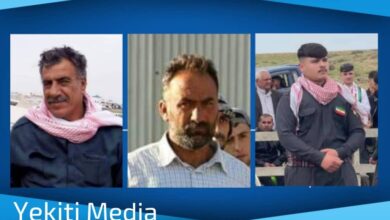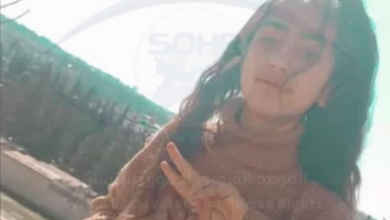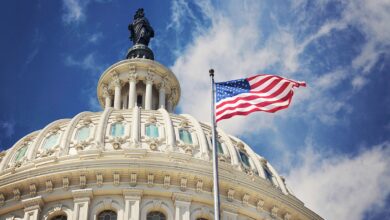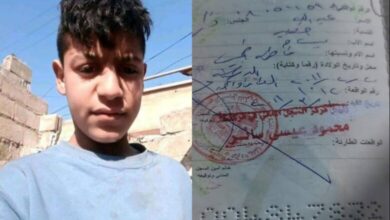
President Barzani: Iraqi PM Abdul-Mahdi understands the Kurdish question
Yekiti Media
The new Iraqi prime minister shall have the full support of the Kurdistan Democratic Party in the new government, KDP President Masoud Barzani detailed on Wednesday, while underscoring the Kurdistan Region will not compromise on Kirkuk’s “Kurdistani identity.”
Barzani is back in Erbil after a whirlwind visit to the Iraqi capital, the holy city of Najaf, Abu Dhabi, and Kuwait City. It was his first trip to Baghdad since the events of October 2017, when Barzani said he would not return until Kurds are seen as equal partners.
“We believe that there is another chance for both the Kurdistan Region and Iraq,” Barzani told reporters in Pirmam.
The KDP won more seats in the parliamentary election than any other single political party. Erbil-Baghdad relations have been warming as the new PM forms his government.
“Adil Abdul-Mahdi is someone who understands Kurdish question,” said Barzani. “We have told him that we will give him thorough support.”
Abdul-Mahdi’s tenure follows former PM Haider al-Abadi ordering a federal takeover of Kirkuk and other disputed areas by the Iraqi Army supported by Iran-backed Hashd al-Shaabi paramilitias and militias.
“We have always said that Kirkuk shall become an example of coexistence for all ethnic and religious groups; however we will not compromise on Kirkuk’s Kurdistani identity,” said Barzani.
A year ago, Abadi sacked Kirkuk’s governor, a Kurd, and appointed an Arab — a move seen by Kurds to be politically motivated and unconstitutional. Local Kurdish residents and officials have claimed Baghdad is restarting Arabization policies.
Barzani said he held “serious” talks about Kirkuk with the new PM, adding that it has to be resolved constitutionally through Article 140 that mandates a provincial referendum.
He also said that it is too early to say everything will be OK because the government has not been formed completely, “but we are optimistic.”
“My visit to Baghdad was to break the psychological wall between us after recent events,” explained Barzani, not wanting to give people too high of expectations because “things are complicated.”
Perhaps no issue is so contentious or immediate between Erbil and Baghdad than the Kurdistan Regional Government’s (KRG) budget share. In 2018, Abadi’s government allocated 12.67 percent to the KRG. Kurds want a return of their 17 percent share, but have floated the idea of a 15 percent lump sum sufficing.
Barzani expressed he doesn’t believe that Abdul-Mahdi will the same mistakes as predecessors.
“How can a failed experienced be repeated?” posited Barzani.
Prior to the events of October 2017, the KRG was exporting around 300,000 bpd of oil from Kirkuk through a pipeline that terminated at the Turkish port in Ceyhan for the global markets. Erbil and Baghdad reached a deal in November to export 50,000-100,000 bpd through the pipeline.
Like Barzani, Abdul-Mahdi and his father struggled against the regime of Saddam Hussein.
“I would not visit Baghdad if I did not know about his personality … he is someone who does not want to harm Kurds,” Barzani said of the new PM.
Iraqi Security Forces, including the KRG’s Peshmerga, have continued to rout ISIS remnants in northern Iraq and the disputed areas.
Barzani, who has been a Peshmerga since he was age 16 and since a commander, said: “The fight against Daesh is harder now because they used to be on the ground but now they are under the ground.”
He echoed the sentiment of Kurdish security officials and politicians that the reasons leading to ISIS’ formation have not been solved.
“Surely, there is ISIS threat in the region,” said Barzani.
US Special Presidential Envoy to the anti-ISIS coalition Brett McGurk had welcomed the talks between Abdul-Mahdi and Barzani.
“Strengthening ties and cooperation between the new Iraqi government and Kurdistan Regional Government [is] essential for the lasting defeat of ISIS,” tweeted McGurk along with a photo from the meeting.
The US State Department was asked on Tuesday if Washington orchestrated the meeting.
“To my knowledge, we were not involved with that. We would always encourage for the Kurdish government and the Iraqi government to meet together, to sit down and have conversations. We encourage constructive dialogue to take place. But to my knowledge, no, we did not have anything to do with that,” replied its spokesperson Heather Nauert during a press briefing.
Barzani described the KRG’s relations with neighboring countries as improving during his press conference.
shafaaq




